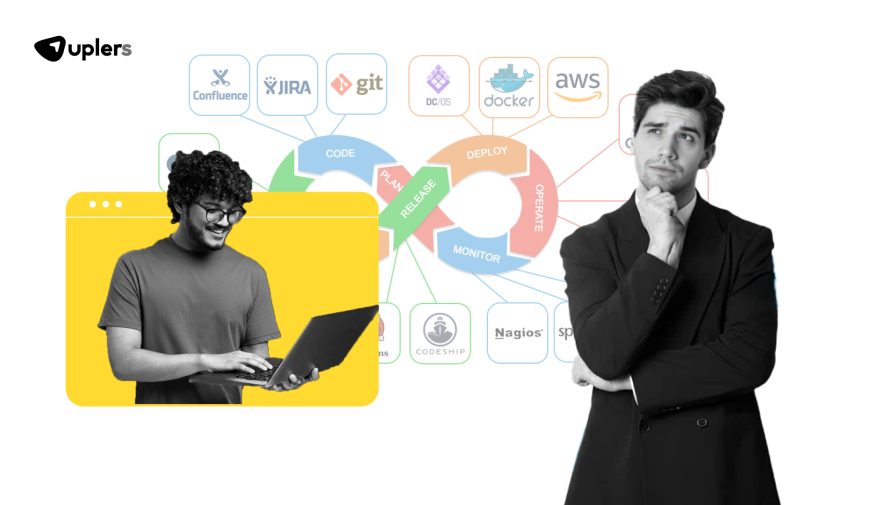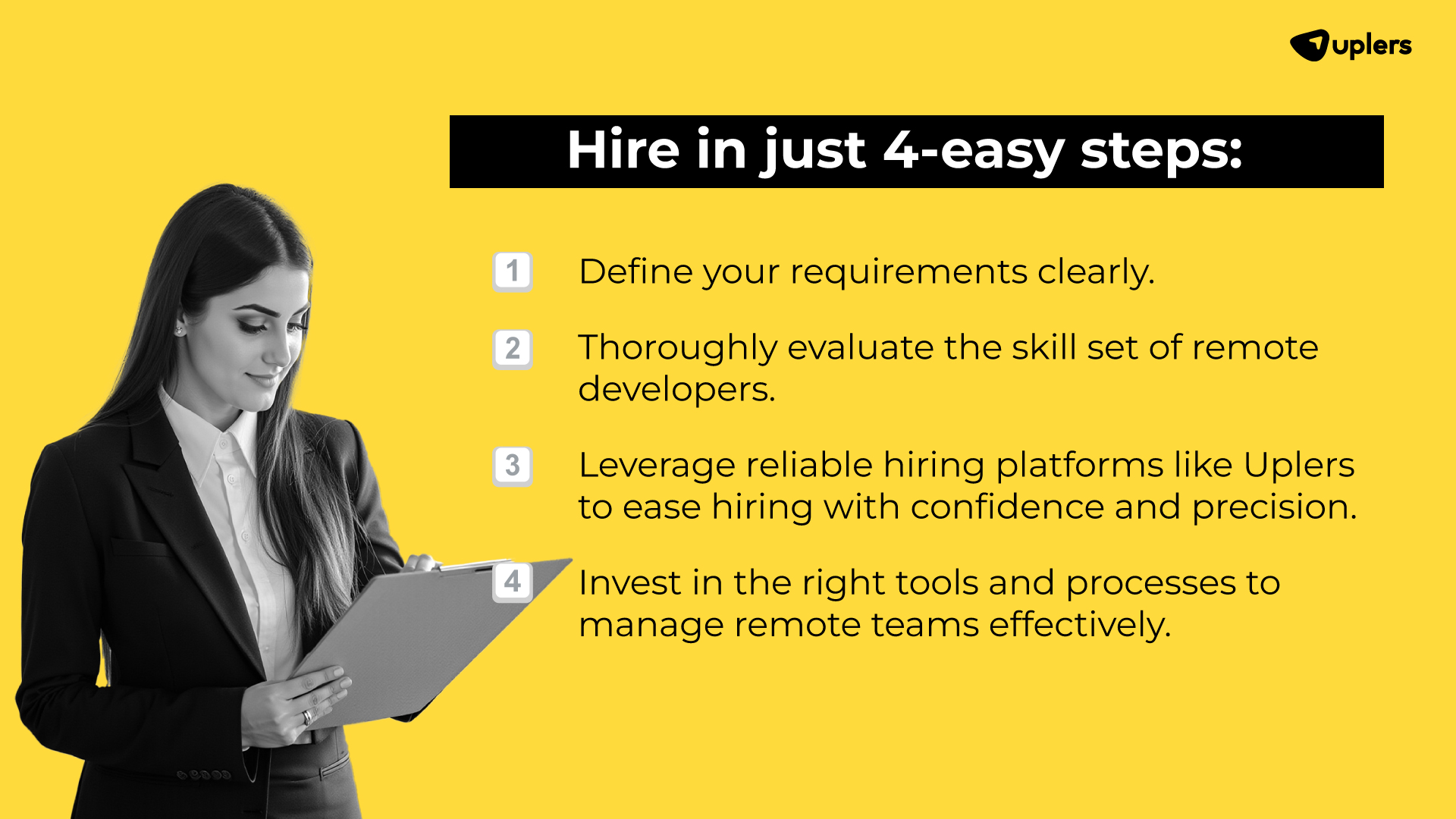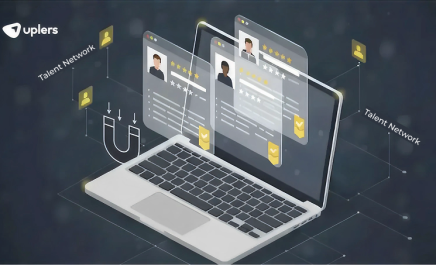7 Essential Skills to Look for When Hiring a DevOps Engineer
- Prachi Shah
- June 21, 2025
- 4 Minute Read

Just like the digital age has taken over the fast-paced business landscape, it’s now time for the cloud-driven tech world. DevOps has transitioned from a niche practice to a mission-critical function in most engineering teams. To steer ahead of the competition, tech businesses are pushing for faster release cycles, better system reliability, and seamless cross-functional collaboration.
DevOps engineers act as a glue that binds development and operations together. But hiring experts for this role is not as simple as resume screening for tool keywords. If you want to hire Devops engineers who can truly make a difference, elevate your infrastructure and product delivery, you must evaluate a nuanced blend of technical depth, automation mindset, and competitive soft skills.
In this blog, we will outline the top 7 skills that every hiring manager needs to look for when building or scaling a DevOps team in 2025.
A Strategic Guide for Tech Leaders to Identify High-Impact DevOps Talent
Proficiency in cloud platforms
In modern DevOps cloud proficiency is non-negotiable. Whether your stack operates on AWS, Azure, or Google Cloud Platform (GCP), your DevOps hire needs to demonstrate experience in deploying, configuring, and scaling infrastructure in cloud environments.
Look out for candidates who can:
- Automate cloud provisioning using Infrastructure-as-Code
- Optimize cloud costs and monitor usage
- Understand high availability and failover strategies
Bounty points if they have designed multi-region or hybrid cloud architectures. In the interview, ask them to illustrate real-world examples of previous cloud projects and not just certifications.
CI/CD pipeline management
Another cornerstone of DevOps is the Continuous Integration and Continuous Deployment (CI/CD). This indicates streamlining the code changes from development to production phase in a safe, repeatable, and automated pattern.
Key things you must consider assessing include:
- Experience setting up pipelines in tools like Jenkins, GitLab CI, GitHub Actions, or CircleCI.
- Familiarity with testing frameworks and deployment rollbacks.
- Understanding of blue-green deployments and canary releases.
A DevOps engineer is a software developer who knows how to design and optimize CI/CD pipelines can significantly cut down the release time and post-deployment issues. These are 2 metrics that your product and ops team deeply care about.
Containerization and orchestration (kubernetes & Docker)
Containers now serve as the standard for packing and running applications. Docker skills are table stakes. But in production, container orchestration alongside Kubernetes (K8s) is equally crucial.
Evaluate the candidates based on:
- Ability to write and optimize Dockerfiles.
- Experience configuring Kubernetes clusters.
- Knowledge of service discovery, auto-scaling, and Helm charts.
- Familiarity with container security best practices.
In 2025, the majority of the enterprise and SaaS companies are running Kubernetes at scale. The ability to troubleshoot pods, manage cluster configurations, and handle persistent storage is what distinguishes a good DevOps engineer from the bunch.
Infrastructure as Code (IaC)
DevOps is not simply about automation, it’s rather about managing infrastructure with the same discipline as code. Infrastructure as Code (IaC) allows teams to consistently provision and maintain environments.
Tools proficiency that you must evaluate when you hire DevOps engineers include:
- Terraform
- Ansible
- Pulumi
- CloudFormation (for AWS-specific roles)
Inquire about how the candidate manages environment parity across the staging and production phase or how they implement GitOps workflows. A DevOps engineer skilled in IaC can assist you to scale efficiently, prevent configuration drift, and enable faster recovery.
System Monitoring, Logging, & Incident Response
What gets measured often gets managed. DevOps engineers need to implement systems that monitor app health, track performance, and alert teams before outages occur.
Essential tools and platforms include:
- Prometheus & Grafana (metrics and alerting)
- ELK Stack or OpenSearch (log aggregation)
- Datadog, New Relic, or Splunk (end-to-end observability)
Beyond tool knowledge, look out for engineers who have participated in on-call rotations or led post-incident reviews. Ask how they have approached an incident, from alert to RCA (root cause analysis). Their responses will tell you how they react under pressure and how proactive they are.
Security and Compliance Awareness
In 2025, security is a part of everyone’s job, especially in DevOps. From misconfigured cloud services to exposed secrets in repos, the risks can be real and expensive.
Your DevOps hire must know:
- How to secure pipelines, environments, and containers.
- Tools like Vault, AWS Secrets Manager, or SOPS.
- How to meet compliance standards like SOC 2, ISO 27001, or HIPAA.
Security is not simply about firewalls. It’s about implementing safe practices into every layer of development and deployment. Make sure that the candidates demonstrate a security-first mindset and not just reactive awareness.
Collaboration and Communication Skills
Technical proficiency alone doesn’t suffice. When you hire DevOps engineers they serve as a bridge between developers, QA, security, and operations team. That implies collaboration is just as important as configuration.
Look for signs of:
- Clear and concise technical communication.
- Experience writing documentation or runbooks.
- Ability to conduct knowledge-sharing sessions or onboard teammates.
Ask them behavioral questions such as:
“Tell me about a time you had to align developers and ops teams on a deployment strategy.”
This scenario will reveal how well they operate in real-world team dynamics.
Build a DevOps Team That Drives Results

To build a resilient and high-performance infrastructure team begins with hiring the right talent. The best DevOps engineers bring a blend of deep technical skills, automation mindsets, and collaborative problem solving.
In 2025, when you hire DevOps engineers you are not simply hiring someone to manage deployments, you are onboarding a strategic partner to ensure your software moves quickly, safely, and efficiently. You need a hiring process that looks beyond keywords to meet today’s complexity and tomorrow’s scale. Evaluate candidates in real-world scenarios prioritizing the skills listed above.
Don’t just fill a role, rather future-proof your infrastructure!






